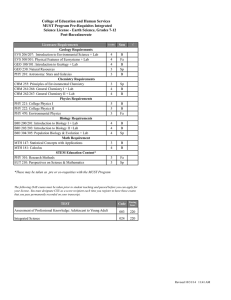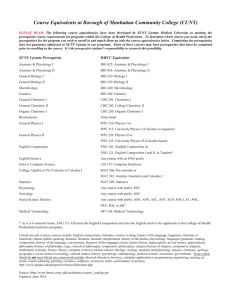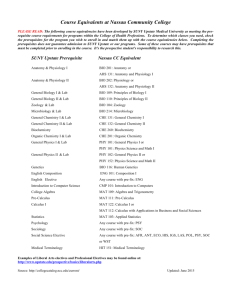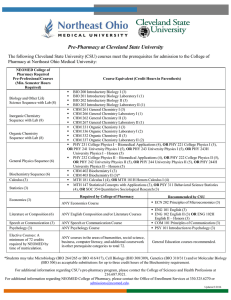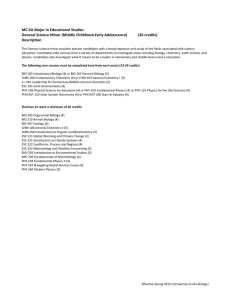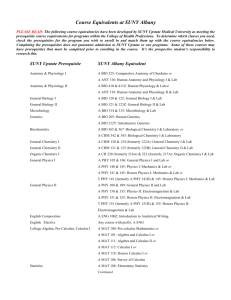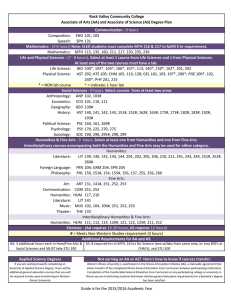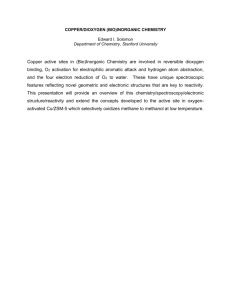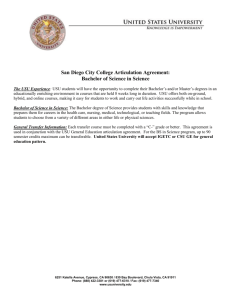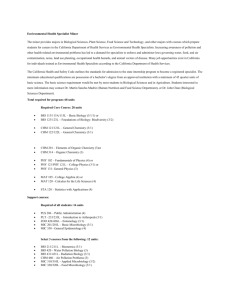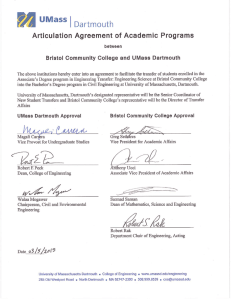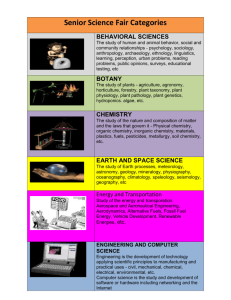Course Equivalents at SUNY Farmingdale
advertisement
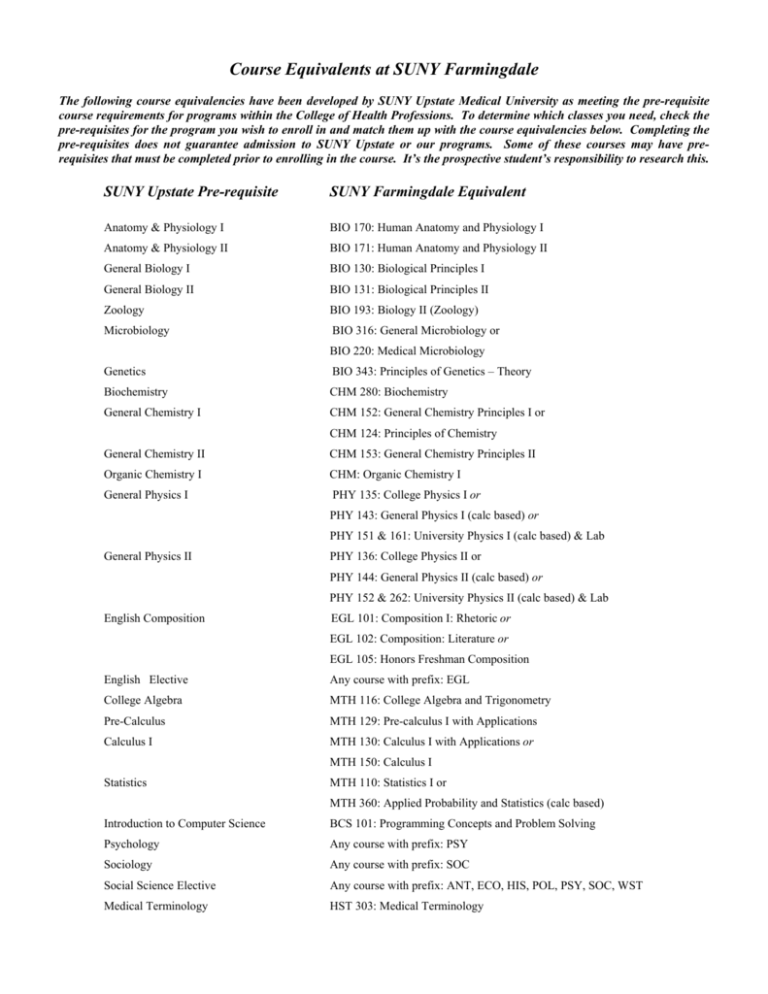
Course Equivalents at SUNY Farmingdale The following course equivalencies have been developed by SUNY Upstate Medical University as meeting the pre-requisite course requirements for programs within the College of Health Professions. To determine which classes you need, check the pre-requisites for the program you wish to enroll in and match them up with the course equivalencies below. Completing the pre-requisites does not guarantee admission to SUNY Upstate or our programs. Some of these courses may have prerequisites that must be completed prior to enrolling in the course. It’s the prospective student’s responsibility to research this. SUNY Upstate Pre-requisite SUNY Farmingdale Equivalent Anatomy & Physiology I BIO 170: Human Anatomy and Physiology I Anatomy & Physiology II BIO 171: Human Anatomy and Physiology II General Biology I BIO 130: Biological Principles I General Biology II BIO 131: Biological Principles II Zoology BIO 193: Biology II (Zoology) Microbiology BIO 316: General Microbiology or BIO 220: Medical Microbiology Genetics BIO 343: Principles of Genetics – Theory Biochemistry CHM 280: Biochemistry General Chemistry I CHM 152: General Chemistry Principles I or CHM 124: Principles of Chemistry General Chemistry II CHM 153: General Chemistry Principles II Organic Chemistry I CHM: Organic Chemistry I General Physics I PHY 135: College Physics I or PHY 143: General Physics I (calc based) or PHY 151 & 161: University Physics I (calc based) & Lab General Physics II PHY 136: College Physics II or PHY 144: General Physics II (calc based) or PHY 152 & 262: University Physics II (calc based) & Lab English Composition EGL 101: Composition I: Rhetoric or EGL 102: Composition: Literature or EGL 105: Honors Freshman Composition English Elective Any course with prefix: EGL College Algebra MTH 116: College Algebra and Trigonometry Pre-Calculus MTH 129: Pre-calculus I with Applications Calculus I MTH 130: Calculus I with Applications or MTH 150: Calculus I Statistics MTH 110: Statistics I or MTH 360: Applied Probability and Statistics (calc based) Introduction to Computer Science BCS 101: Programming Concepts and Problem Solving Psychology Any course with prefix: PSY Sociology Any course with prefix: SOC Social Science Elective Any course with prefix: ANT, ECO, HIS, POL, PSY, SOC, WST Medical Terminology HST 303: Medical Terminology Liberal arts and sciences courses include: English (composition, literature, creative writing, history of the language, linguistics, literature in transition); drama (public speaking, dramatic literature, dramatic interpretation, history of the drama, playwriting); languages (grammar, reading, composition, history of the language, conversation, literature of the language); music (music history, appreciation); art (art history, appreciation); philosophy (history of philosophy, logic, schools of philosophy, comparative philosophy); religion (history of religion, comparative religion); mathematic (calculus, history, theory, computer science); natural sciences (biology, zoology, anatomy and physiology, physics, chemistry, geology, geography); social sciences (sociology, cultural studies, history, psychology, anthropology, political science, economics, government). Some course which do not meet liberal arts coursework include: physical education, business, computer application or programming engineering, nursing, art studio courses (drawing, painting, ceramics, sculpture), and music studio, performance or practice. Source: http://www.farmingdale.edu/registrar/catalog.shtml Updated: June 2012
